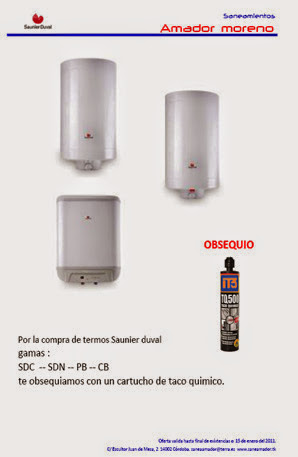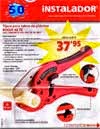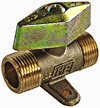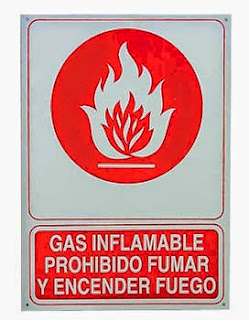Friday, December 17, 2010
Tuesday, December 14, 2010
Is It Ok To Give A Baby Water If They Have Reflux
donate you happy holidays with a chemical cartridge taco Promotion

Wednesday, December 1, 2010
Surface Area Of Elliptical Dish End
"Ecodriving ... A simple practice!" Benefits
Why eco-driving?
The 10 key eco-driving:
Source:


Why eco-driving?
Although nominal consumption of new vehicles has declined, total fuel consumption and pollutant emissions continue to rise at an alarming rate.
To achieve the objectives of European policy and meet Kyoto Protocol targets on reducing CO2 is necessary to increase energy efficiency in the transport sector.
To achieve the objectives of European policy and meet Kyoto Protocol targets on reducing CO2 is necessary to increase energy efficiency in the transport sector.
The 10 key eco-driving:
- Startup and commissioning m archa:
- Starting the engine without depressing the accelerator.
- In gasoline engines, start up immediately after starting.
- In diesel engines, wait a few seconds before starting the march.
- First up:
- Use it only for the start of the march, change 2 nd at 2 seconds or 6 meters.
- acceleration and brand switching has :
- According
- revolutions
- In petrol engines between 2,000 and 2,500 r / min
- In diesel engines, among the 1,500 and 2,000 r / min
- Depending on the speed:
- to 2nd gear, at 2 seconds or 6m
- to 3 rd place: from about 30 km / h
- to 4 th place : from 40 km / h
- to 5 th place: above about 50 km / h
- Speed after completion of the change.
- revolutions
- Use of gears:
- Circular as possible in higher gears at low revs.
- is preferable circular in gear with the throttle more so than in lower gears with the throttle less trodden.
- In town, where possible, use the 4 th and 5 th place.
- The car consumed less in the higher gear at low revs. For example, a small engine car (1.2 liters), traveling at a speed of 60 km / h.
- In 3rd gear, uses 7.1 liters of gasoline,
- In 4 th, 6.3 liters (11% less),
- In 5 th, only 6 liters (15% less).
- Flow Rate:
- Keep it as uniformly as possible, searching for fluid flow, avoiding sudden braking, acceleration and gear changes unnecessary.
- Moderator: The fuel consumption increases with speed squared. A speed increase of 20% (ie spend 100 to 120 km / h), means a 44% increase in consumption (of 8l/100 km to 11.5 l/100 km).
- Deceleration:
- Lift off the throttle and let the vehicle roll with the gear at that time.
- brakes smoothly with the brake pedal.
- downshifts as late as possible, with particular emphasis on the downhills.
- Detention:
- Whenever the speed and space permit, stop the car without reducing running previously.
- Stops:
- In stoppages (above 60 seconds), you should turn off the engine.
- Anticipation and foresight:
- Always ride with proper safety distance and a wide field of vision to see 2 or 3 vehicles in front.
- The moment an obstacle is detected or a reduction in velocity in the track, his foot off the accelerator to anticipate the following maneuvers.
- Security:
- In most situations, apply the rules of eco-driving contributes to increased road safety.
- But obviously there are circumstances which require different specific actions so that security is not compromised.
Source:

Tuesday, November 30, 2010
Funny Wedding Messages Card
The benefits we get with eco-driving are as follows:
- average fuel savings by 15%
- environmental improvement
- 15% reduction in emissions of CO2 to the atmosphere
- Reduced noise pollution.
- Reduced risk of accidents.
- Increased comfort of the vehicle.
- driver stress reduction.
- Savings in maintenance costs of vehicle braking systems, embregue, gearbox and engine.
Did you know .....?
- cars consume 15% of the total energy consumed in Spain
- 29% of the country's CO2 emissions from the transport sector.
- driving more than 20 kilometers per hour with gear, if you hit the accelerator, the vehicle consumption is zero.
- However, at idle, consume 0.5 to 0.7 liters per hour.
Source:


Tuesday, November 23, 2010
Salieri Streaming Mario
Rothenberger tools until December 31, 2010
Promotion
Rothenberger tools until December 31, 2010 Promotion
download the brochure here or www.saneamador.tk
Wednesday, November 17, 2010
Tuesday, November 16, 2010
Monday, November 15, 2010
Can Panadol Kill Stomach Ache?
Play Detector FEBI TESTER

TESTER GET YOUR FEBI
The Febio Tester is a universal tool for checking the status of the suspension and steering of front and rear of the vehicle for up to twenty-inch wheels and vehicle up 3.5 MT, which requires no electricity or gas use, created by a professional the workshop, Bilstein febi patent is for the professional repair visualize the movement of all parts in effect real progress, something not possible with the vehicle on the lift, in addition to verifying their status, the equipment in just five minutes operaicón user with a visual demonstration.
Tuesday, November 9, 2010
Free Downlodftv Mid Night Hot.com
TAPS Panel
Using convection technology, heating panels Wall Econo-Heat generate heat mainly behind the furnace, between the panel and the wall, which generates a current that circulates heat efficiently in the room (warm air out from behind heater at a speed of 0.7 meters per second!). This means that approximately 90% of heat comes from the back of the heater, while only 10% is radiated from the front panel. convection heating is more effective than radiation heating .
A panel electric heater is installed on the wall.
The ECONO-KIT TM includes: 1 x bit, 4 x 4 x spiked spacers and mounting.


Use the holes you have the shield of cork, which comes with the panel as a template to mark the place where you want it. For accuracy, use a leveler. Having made the marks, and may proceed to make the holes. For best results in your unit, install it approximately 15 cm from the ground (more or less above the wall socket.)


separators Once inserted into the holes, place the panel on them, engaging both sides.


Finally, lock the panel with skewers, pressing firmly. (To help
can use a rubber hammer head. Be careful not to damage the panel).
PROMOTIONAL VIDEO

Using convection technology, heating panels Wall Econo-Heat generate heat mainly behind the furnace, between the panel and the wall, which generates a current that circulates heat efficiently in the room (warm air out from behind heater at a speed of 0.7 meters per second!). This means that approximately 90% of heat comes from the back of the heater, while only 10% is radiated from the front panel. convection heating is more effective than radiation heating .
Functional Enhancements:
- New fiber cement formula: The fiber cement panels of Econo-Heat heating is now produced to a new formula that reduces moisture content.
- New Econo-Kit: The new patented Econo-Kit ensures an easy installation and avoids stress on the plate allowing a slight movement when the hotplate is heated.
- New adhesive: has been specially formulated glue a new, effective and no driver to connect the two panels forming the wall heater Econo-Heat, ensuring security in its application to 100%.
- New waterproof paint: The new water resistant paint used in our panel wall heaters provides a smoother finish and elegant, allowing easy cleaning of dirt stains. It also helps to prevent outside moisture or vapor from entering the panel.
- New connectors: The connection of the wiring harness cable with nickel-chromium resistance within the heating panel has been improved. A welding point and a rigid connectors have replaced the old method of pressing the cable set with the resistance, making the connection even more secure.
- switch on and off the panel improved: switch on and off the panel is now conveniently located behind the heater panel wall, protruding only a little switch on the side. This gives the heater a subtle finish very pleasing to the eye. The low light switch illuminates when the heater is running, causing the heater to check the status much easier.
- Improved appearance: heater corners are now rounded finish line with trends in interior úcltimas the heater to provide a more elegant and modern.
- mold New user-friendly installation: polystyrene mold protects the panel inside the box now has four holes that match the holes to be drilled for mounting the plate. Use these holes as a reference and an effortless level to mark the position of the four holes on the wall.
Questions Answers:
- HEATER WHAT IS IT?
A panel electric heater is installed on the wall.
- WHAT MATERIAL IS MADE?
- HOW IT WORKS
- WHAT EXTENT IS FINANCIAL?
- HOW CAN THAT BE CASH?
- ROOM SIZE WHAT IS CAPABLE OF HEAT?
- DID YOU NEED IF YOU HAVE A CENTRAL HEATING SYSTEM AT HOME?
- HOW MUCH DOES IT TAKE TO WARM A ROOM?
- IS SAFE CHILDREN AND PETS?
- WHAT IS YOUR SIZE?
Installation instructions
Instructions:
Use the holes you have the shield of cork, which comes with the panel as a template to mark the place where you want it. For accuracy, use a leveler. Having made the marks, and may proceed to make the holes. For best results in your unit, install it approximately 15 cm from the ground (more or less above the wall socket.)
separators Once inserted into the holes, place the panel on them, engaging both sides.
Finally, lock the panel with skewers, pressing firmly. (To help
can use a rubber hammer head. Be careful not to damage the panel).
PROMOTIONAL VIDEO
Wednesday, November 3, 2010
Pokemon Colosseum Hack Advance Map
Fines for not wearing a seat belt. Who pays them?

The responsibility to pay the penalty imposed is the one not wearing a belt, either the driver or other occupant.
The last general circulation regulation requires all passengers to wear seat belts in both urban and interurban roads. Are exempt from this standard drivers taxis, ambulances and police cars in city streets, if they are in service, can travel without a belt. According to law, is punishable by a fine of 90 to 300 euros to anyone who is not wearing a seat belt. It's a lack classified as "serious" and the driver in addition forfeit three points. Accompanying adults are solely responsible for not wearing it and deal with the fine that this can entail.
The last general circulation regulation requires all passengers to wear seat belts in both urban and interurban roads. Are exempt from this standard drivers taxis, ambulances and police cars in city streets, if they are in service, can travel without a belt. According to law, is punishable by a fine of 90 to 300 euros to anyone who is not wearing a seat belt. It's a lack classified as "serious" and the driver in addition forfeit three points. Accompanying adults are solely responsible for not wearing it and deal with the fine that this can entail.
Friday, October 15, 2010
Subscribe to:
Comments (Atom)
































